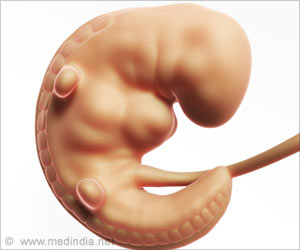Fasting-mimicking diet slows kidney disease in animal models and shows protective effects in human patients with chronic kidney disease.

In patients with chronic kidney disease, irreversible disease progression is triggered by the loss of podocytes, essential components of the kidney’s glomerular filtration barrier. Until now, preventing podocyte damage, loss, and the resulting deterioration leading to end-stage kidney disease has been a challenge for physicians and researchers(1✔ ✔Trusted Source
A kidney-specific fasting-mimicking diet induces podocyte reprogramming and restores renal function in glomerulopathy
).
However, promising results have emerged from a study led by Dr. Laura Perin, Co-Director of the GOFARR Laboratory at The Saban Research Institute of Children’s Hospital Los Angeles, alongside Dr. Valter Longo, Professor at USC Longevity Institute of the Davis School of Gerontology, and international collaborators. In this study, animal models with chronic kidney disease were fed a specialized low-salt, fasting-mimicking diet (LS-FMD), designed to match the daily intake recommended for human patients with chronic kidney disease.
Promise in Slowing Kidney Disease
The researchers found that six cycles of this diet slowed the deterioration of kidney structures and function in rodents. Crucially, it induced the reprogramming of podocytes and restored the filtration structures of kidneys.
The animals that received dietary interventions had a significant reduction in albumin-to-creatinine ratio (ACR) and blood urea nitrogen (BUN) at 4 and 6 weeks after six diet cycles, as well as a significant reduction in glomerular and tubular injury, compared to freely fed rodents.
“When we examined these animal models, we found that long-term kidney function and structure was improved,” says Dr. Perin. “The transcriptional profile of the major kidney structures resembled those of a healthy rat. We saw evidence on the molecular and cellular level that this fasting-mimicking diet induces podocyte reprogramming and restores renal function in glomerulopathy.”
Human effects of the Diet
In a pilot study in 13 patients with chronic kidney disease, cycles of the fasting-mimicking diet were kidney-protective, including reducing proteinuria and improving endothelial function compared with patients who did not receive dietary intervention.
“These results show that FMD cycles can promote reprogramming/regeneration in mice and rats but also increase circulating progenitor cells in humans, so they should be tested further for treatment of progressive kidney diseases,” says Dr. Longo. “This fasting-mimicking diet seems to induce changes in gene expression that slow kidney degradation, suggesting potential interventions for patients with chronic kidney disease.”
Advertisement
Reference:
- A kidney-specific fasting-mimicking diet induces podocyte reprogramming and restores renal function in glomerulopathy – (https://www.science.org/doi/10.1126/scitranslmed.adl5514?adobe_mc=MCMID%3D76906685725779296730175987580022195467%7CMCORGID%3D242B6472541199F70A4C98A6%2540AdobeOrg%7CTS%3D1730528955)
Source-Eurekalert



